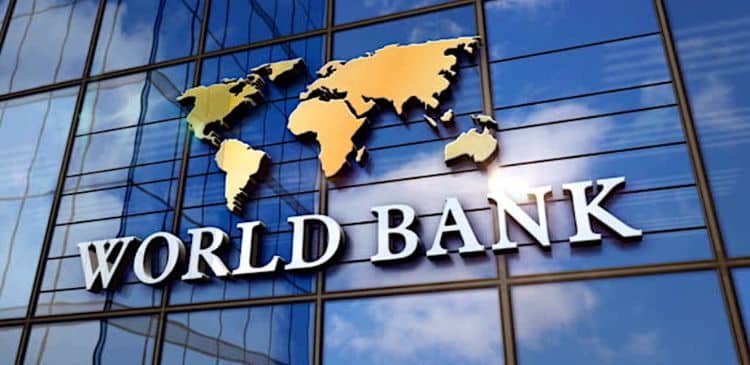For One Week, Finance Ministers From Different Countries Across The Globe Gathered At The International Monetary Fund IMF And World Bank Headquarters In Washington DC To Address Global Economic Challenges Including Economic Stability And Inflation , Debt Relief And Financial Stability , Climate Action And Energy Transition: , Digital Economy And Cross-Border Payments And also Set Priorities For The Coming Year.
The October 2024 International Monetary Fund (IMF) World Economic Outlook Report Highlights Modest Yet Stable Global Growth Projections Of Three Point Two Percent For Both 2024 And 2025, While Acknowledging Persistent Structural Challenges And Rising Downside Risks.
It Revised Its Projections for Nigeria’s Economy, Citing Challenges like Security Issues in Oil Regions, Flooding, and Underperformance in the First Half Of 2024.
The IMF Now Anticipates That Nigeria’s GDP Growth Will Hold Steady At 2.9% In 2024, Marking A 0.2% Decrease From Previous Projections While Inflation In Nigeria Is Projected To Average 32.5% For 2024, With Expectations That It Could Decrease To 25% By 2025, Provided That Nigeria Continues Its Monetary Tightening Policies.
IMF’s Managing Director Kristalina Georgieva Expressed Concerns Over Diminishing Productivity And Rising Debt Burdens, Especially For Lower-Income Nations Where Increased Debt Service Costs Will Force Difficult Trade-Offs Between Essential Public Investments And Debt Obligations.
MUST READ: Enugu Government vows to Ensure Justice is Served Over Murder of Traditional Ogene Musician
She Called For International Cooperation, Advocating That A United Approach To Issues Like Climate Change And Economic Inequality Would Be More Effective Than Isolationist Or Protectionist Policies.
World Bank President Ajay Banga On His Part Underscored The Deep Challenges Facing Low-Income Countries Within The Global Economy. His Primary Concerns Revolve Around The Rising Debt Levels And Vulnerability To External Shocks, Which Are Compounded By High Inflation, Food Insecurity, And The Impacts Of Climate Change. Banga Stressed That Lower-Income Nations Bear A Disproportionate Burden From Climate-Related Disasters And Economic Downturns, Which Often Delay Their Development And Deepen Poverty.
Nigeria’s Minister Of Finance Wale Edun Who Is The Head Of
Nigeria Delegation Emphasized The Importance Of Macroeconomic Reforms And Reducing Reliance On Concessional Funding During Recent IMF And G24 Meetings. He Outlined Nigeria’s Shift Toward Economic Stability By Implementing Reforms Such As Removing Fuel Subsidies And Adopting A Market-Driven Exchange Rate To Attract Private Investment. Edun Advocated for Nigeria’s Reliance on Private Sector Capital over Concessional Financing Alone, Highlighting How Internal Reform Could Enable Long-Term Stability And Economic Growth.
Recognizing Nigeria’s vulnerability to climate change, both institutions highlighted the necessity of integrating climate resilience into National Development Plans. They urged investments in Sustainable Agriculture and Renewable Energy.
As The Meeting comes to a close, IMF and the World Bank recommended that Nigeria Is Addresses Fiscal Challenges, Enhances Social Protections, And Improves Investment Climate.
IMF Suggested Maintaining A Cautious Approach To Monetary Policy To Combat Inflation While Supporting Economic Growth.
Recommendations for Nigeria:
“Implement the proposed fiscal and monetary reforms to stabilize the economy.
Invest in infrastructure and human capital to drive growth.
Enhance social safety nets to support vulnerable populations.
Foster a business-friendly environment to attract investments.
Incorporate climate resilience into economic planning”
This outlook sets the stage for Nigeria’s potential recovery and growth, contingent upon effective policy implementation and global economic conditions.
(Editor: Nkoli Omhoudu)








